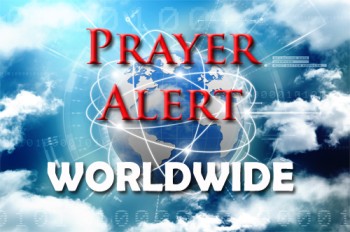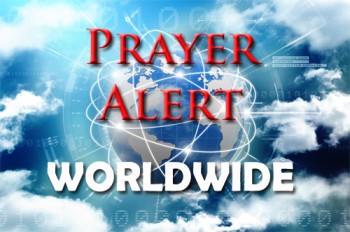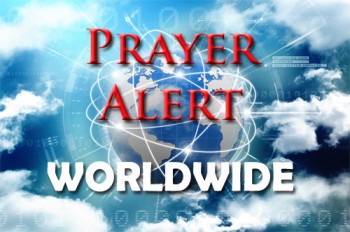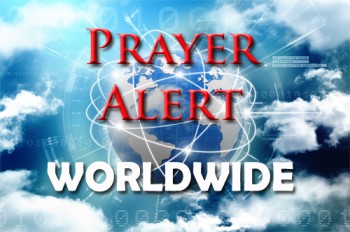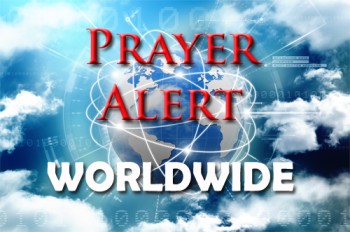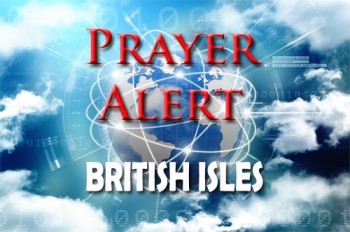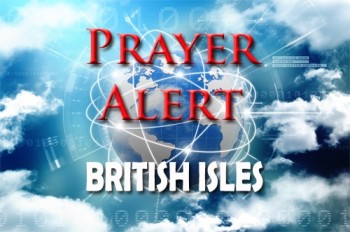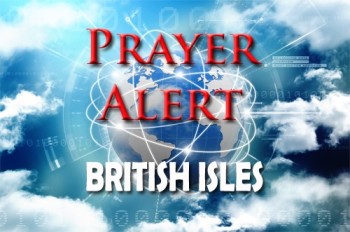Middle East Christians: subdued Easter celebrations
This year’s Easter celebrations in the Middle East were subdued. In Gaza City, Christians who have found refuge in the Holy Family Church brought palm branches to the Palm Sunday service. One of their priests said the congregation has been ‘enduring relentless Calvary for months’. SAT-7 broadcast Easter services live from the Evangelical Lutheran Church in Bethlehem. The church’s pastor said, ‘In Palestine our Good Friday has lasted way too long, but Easter reminds us that the final word belongs to God… Our belief in the God of the Resurrection means that ultimately goodness, righteousness, and justice will prevail’. There were few foreign pilgrims in Jerusalem and most West Bank Christians were denied access under tightened security rules. SAT-7’s Turkish channel broadcast a service from a church in Istanbul which had been attacked by two gunmen during a Sunday service on 28 January; one man was killed in the incident. SAT-7 wanted to show solidarity with the congregation after such a traumatic event. SAT-7’s Easter programming is especially important for those in countries where people cannot celebrate openly because of persecution and restrictions on religious freedom.
Australia: two stabbings in Sydney
Sydney is reeling after two knife attacks within three days. At Bondi Junction, Joel Cauchi, who had a history of mental illness, killed six people and injured others. At a church in Wakeley, a teenager injured a bishop and several others, but there were no fatalities. Despite both incidents causing fear, they have been treated differently by authorities. The Wakeley stabbing was declared a terror incident, while the Bondi Junction attack was not. This has caused puzzlement: the local Islamic Council ‘found it bewildering’, and said, ‘The signal this sends to the Australian community is that terrorism is solely reserved for Muslims.’ The investigation into the Bondi Junction attack continues, focusing on the perpetrator's motives and actions. One of the men who confronted Cauchi has been promised a renewal of his temporary visa: see
North Korea: new proposal for enforcing sanctions
The USA, South Korea, and Japan are proposing a new multinational panel outside the UN to enforce sanctions against North Korea. Russia rejected renewing the UN panel which has monitored sanctions for fifteen years, and China abstained. The new panel, with support from allies like Australia and New Zealand, would aim to continue the UN’s work. Though lacking UN endorsement, it could monitor North Korea more effectively, and could also oversee human rights resolutions on North Korea. US ambassador Thomas-Greenfield is discussing options with South Korea and Japan. Noting that Moscow and Beijing have called for easing sanctions to restart diplomacy and ease humanitarian suffering in the impoverished nation, he urged them to reverse course, and stop rewarding North Korea's bad behaviour.
Africa: USA may need to improve relationships due to shortage of minerals
The USA may need to reassess its relationships with African nations as it faces a potential shortage of critical minerals essential for weapon manufacturing. This comes as it and its allies provide arms to conflict zones like Ukraine and Israel. In both cases, these include advanced missile systems which rely on critical minerals found in Africa. These include cobalt, sourced from the Democratic Republic of Congo, antimony from South Africa, and graphite (found in many countries). A study group has warned that a shortage of these minerals could hinder military capability and national security, impacting the arms race with China. In its policy towards Africa, the US has shown renewed interest in the DRC and Zambia through the rebuilding of the Lobito Corridor, a rail and road network which will link the two countries to Angola and straight to the Atlantic Ocean.

